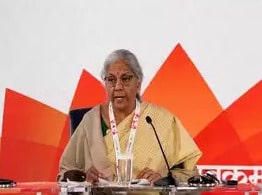
In a recent study conducted by the Indian Biogas Association (IBA), it has been revealed that a biofuel alliance has the potential to generate extraordinary opportunities amounting to $500 billion within the next three years for G20 countries. The IBA emphasizes that this alliance not only promises substantial economic gains but also presents a mutually beneficial solution for both G20 nations and the environment.
The study’s findings come at a significant juncture as India plays host to the G20 leaders’ Summit in New Delhi, underlining the relevance and urgency of this potential biofuel initiative.
According to the IBA’s research, biogas alone holds the capacity to create economic opportunities amounting to $200 billion. This estimation takes into account the relatively low investment requirements and the ready availability of essential raw materials, positioning biogas as an attractive energy generation option.
Furthermore, the study underscores the pivotal role of bioenergy and biogas in potentially replacing fossil fuels entirely, with a particular focus on their potential to decarbonize the transport sector. This approach aligns with global efforts to reduce carbon emissions and transition towards sustainable and environmentally friendly energy sources.
The prospects of a biofuel alliance on such a scale represent a transformative opportunity for G20 nations, offering numerous benefits:
- Economic Growth: The projected $500 billion in opportunities over the next three years can significantly contribute to economic growth within G20 countries. These opportunities encompass various sectors, including agriculture, energy, and technology, fostering innovation and job creation.
- Energy Independence: A biofuel alliance can reduce dependence on traditional fossil fuels, enhancing energy security for participating nations. By harnessing bioenergy sources like biogas, G20 countries can diversify their energy mix, mitigating the risks associated with energy supply fluctuations and geopolitical tensions.
- Environmental Sustainability: One of the most compelling aspects of this alliance is its potential to address environmental concerns. By shifting towards biofuels, G20 countries can make substantial progress in reducing greenhouse gas emissions, mitigating air pollution, and promoting cleaner and sustainable energy practices.
- Technological Advancement: The pursuit of biofuels and biogas as viable energy alternatives will stimulate technological advancements in the field of renewable energy. This innovation can lead to breakthroughs in energy efficiency, storage, and distribution.
- Job Creation: The biofuel sector offers opportunities for job creation, spanning from the cultivation of feedstock to the production and distribution of biofuels. This can positively impact employment rates and rural economies.
- Reduced Energy Costs: As biofuels become more prevalent, they can potentially contribute to stabilizing energy prices. With a diversified energy portfolio, G20 nations can better manage energy costs, reducing vulnerability to price fluctuations in global energy markets.
- International Collaboration: The biofuel alliance presents an opportunity for G20 nations to collaborate on a global scale. Shared research, technological advancements, and policy frameworks can accelerate the transition to sustainable energy sources and promote international cooperation.
As nations grapple with the challenges posed by climate change and the imperative to transition to cleaner energy sources, the IBA’s study underscores the pivotal role of biofuels, particularly biogas, in this transition. By embracing biofuels on a substantial scale, G20 countries can not only unlock immense economic opportunities but also address pressing environmental concerns, setting a precedent for sustainable and responsible energy practices.
The IBA’s findings serve as a timely reminder of the potential that biofuels hold in reshaping the energy landscape. The forthcoming deliberations and actions of G20 leaders at the summit in New Delhi may chart a course towards a more sustainable and prosperous future, driven by biofuels and their far-reaching benefits.










